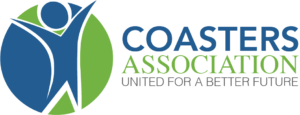Coasters Association
Our Programs & Networks

Canadian Heritage

COMING SOON
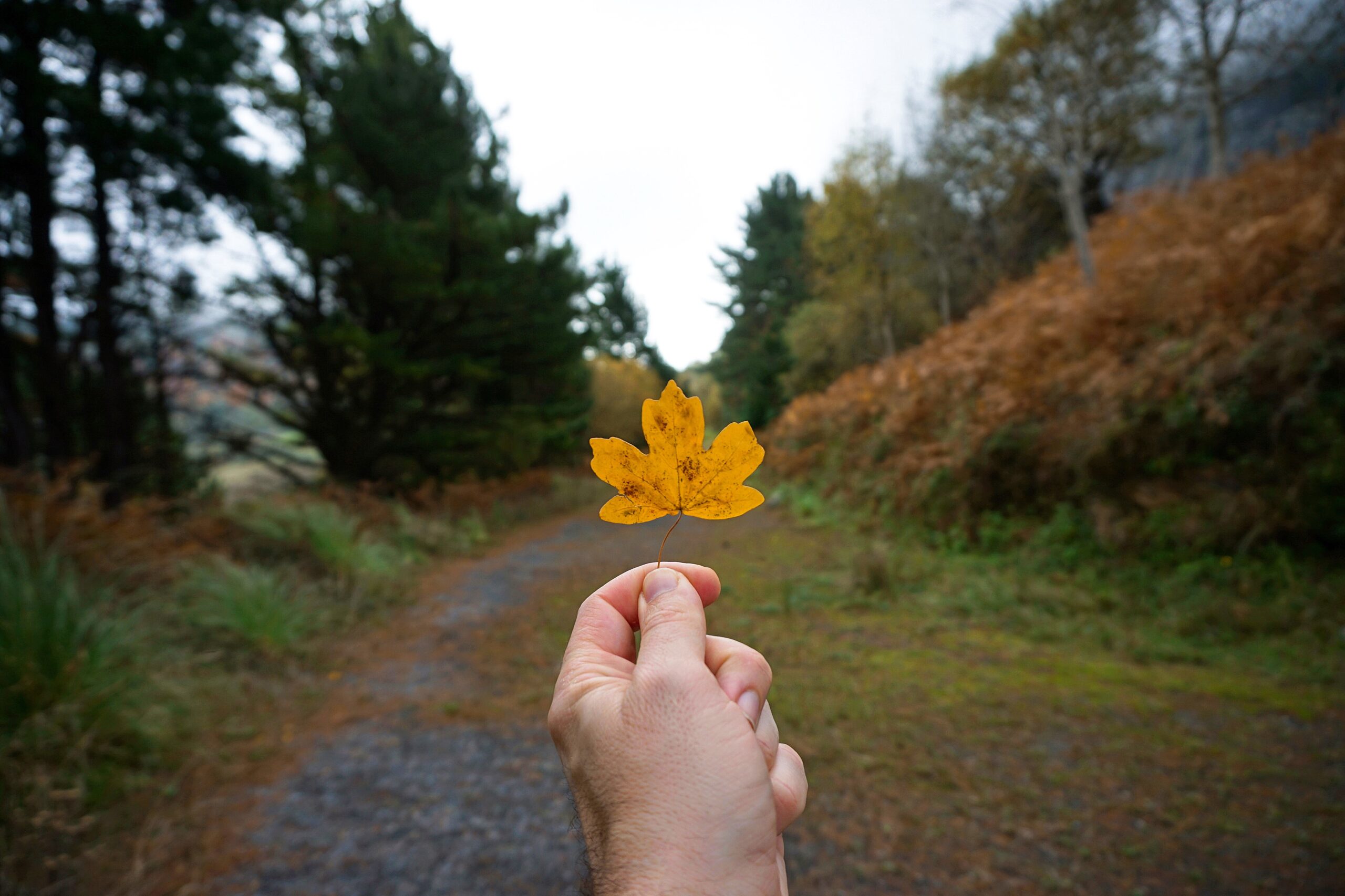
Canadian Heritage Funding Allocations

COMING SOON

Canadian Heritage on the Lower north shore

COMING SOON
Canadian Heritage Contacts


Kimberly Buffitt
Director of Engagement & Development
kimberly.buffitt@coastersassociation.com

Kayla Kippen
Director of Operations & Innovation
kayla.kippen@coastersassociation.com
Networking & Partnership Initiative

The Community Health Social Service Network – Networking and Partnership Initiative (NPI) supports the development and mobilization of community health and social services networks throughout the province of Quebec to engage with local and regional partners to improve access to health and social services minority English-speaking population. Health Canada finances this initiative through the Action Plan for Official Languages 2018-2023: Investing in our Future.
The NPI is inspired by CHSSN’s Community Mobilization Model, which encourages English-speaking communities to adopt an intersectoral networking and partnership approach and take action on key health determinants impacting the health and well-being of English-speaking communities throughout the province. NPIs also participate in leadership training to build their capacity and share knowledge.
History of NPI
The Coasters Association strategic plan has outlined the improvement of access to Health and Social Services as one of its key objectives. In the past sixteen (16) years, the network known as the (Lower North Shore Coalition for Health (LNSCH)) has developed a strategic plan and sustainability plan where partners have committed to developing and maintaining a long-term and sustainable Regional Health Network. In the past year, the LNSCH has expanded its mandate to incorporate the support of the Table Qualité Santé de Vie and developed the members sitting at the LNSCH. To accomplish this, the LNSCH created a working group made up of representatives of the CISSSCN and the Coasters Association and has started to share the responsibilities for the table’s management. In the local communities, a structure of Local Action Groups is still in place to support the animators in delivering quality programs and services to the communities.
The LNSCH has expressed its commitment to developing and maintaining a long-term and sustainable Strategic Plan and Sustainability Plan. Through the network evaluation, there are areas in the network that needs further development (i.e. communication, support to vulnerable populations, community-based programming development and referral systems between organizations, etc.). Over the next two (2) years, the LNSCH network will continue to implement a training component as part of their staff development to improve programming in the local villages and provide strategic planning support through the CHSSN with the partners supporting the implementation of their expanded mandate.
The Education Network that continues to act as a sub-network to manage the McGill programs will need to develop a new strategic plan and discuss areas for improvement. It has been very inactive since the new CISSS structure was implemented. The Coasters Association may also explore the integration of this committee into the HOME (Hiring, mentality, Opportunities, and Employability) Committee that is already in place.
The need for Local Action Groups to be more implicated with animators will be looked at. Therefore, additional resources are required to keep these strategies moving forward.
The NPI is designed around five core activities:
- Networking: Building a network table and creating opportunities to share information, identify issues, challenges, and solutions such as service improvements.
- Representation: Participation on advisory and decision-making tables and representing the needs and challenges of the English-speaking community.
- Knowledge Development: Developing and disseminating an evidence-base such as statistics and priorities, and sharing best practices.
- Partnerships: Creating projects in collaboration with health and social services partners, such as a demonstration or pilot project.
- Outreach: Activities to reach vulnerable and isolated English-speakers and supporting them in accessing health and social services in English.

NPI Funding Allocations

COMING SOON
NPI on the Lower north shore

Representation
local, regional, provincial organizations and institutions through representation and has been quite successful. The Lower North Shore has a representative on the Provincial Health Committee, Regional Access Committee, Advisory Committee to the CISSSCN, Users Committee for the CISSSCN, Alzheimer’s Regional Committee, Seniors Table for the Cote Nord Region, Eclore, plus many more. This improved representation has allowed access to knowledge of programs and files and has given the Lower North Shore a voice to raise concerns and provide valuable feedback when decisions are being made.
In the next two (2) years, we foresee the maintenance of the representation on these committees and trying to improve information sharing from these representatives to the local groups and residents within the population. We also aim to be much more active with the CAR and present annually to this body to see how we can work more actively with its members. The LNSCH also has to set a strategic direction for what they would like to accomplish at these decision and advisory structures identified as essential decision-making bodies.
Outreach
the Lower North Shore Coalition for Health’s (LNSCH) networking table has grown, and its dossiers have expanded. In 2019, the LNSCH revisited its priority areas and established seven (7) priorities based on the priorities of the CISSSCN (Seniors and those with loss of autonomy, Youth and families, Mental health, Physical disability, Intellectual disability and development disorders, and Dependencies and Social and Economic Development). These priorities will be maintained through the next two (2) years. The Coasters Association and LNSCH have worked diligently to improve access in these seven (7) areas. This was done mainly to serve the population better and look at the integration of physical and public health philosophies in all the work carried out by the LNSCH.
There have been many successes in the last sixteen years (16) of establishing programs and services in the communities throughout the Lower North Shore. Now that the structures and platforms (i.e. Wellness Centers, Daycares, youth programming, KIDS Summer Camp programs, training, Health Prevention Promotion Programs, PACE, Nutrition North Education Initiative, Community Summit, etc.) are in place to better serve the population, the partners have to gain an understanding of some of the underlying health determinants affecting our people. A more considerable concentration will also be placed on vulnerable populations (i.e. Isolated seniors, caregivers, youth experiencing difficulties, young children and their families, people suffering from mental health issues, people with dependencies (i.e. drug/alcohol addiction, gambling, etc.), those living in low-income and poverty and unilingual people.
Also, a strategic approach will be taken in collaboration with the Lower North Table for Seniors to address the recruitment and integration of volunteers into the developed social programs. Therefore, there is a need to understand and facilitate these shifts to build and pilot volunteer recruitment, training, and placement program in the senior social programs.
A restructuring process will also be undertaken for the management and funding structure of specific initiatives (i.e. Show me The Way, Wellness Centers, Senior housing, etc.). We hope to obtain better collective results and increased sustainability through this restructuring.
In the next two (2) years, the LNSCH will work with local partners to establish a sustainable structure for the established programs and ascertain the gaps regarding programming and adapted services, especially in the vulnerable populations identified. The gaps identified will be addressed, and the sustainability of existing programs will be established by developing and implementing community wellness plans.
Knowledge Development
collected to measure the health and social issues of the Lower North Shore. However, the communities find it challenging to explain the actual situations to federal and provincial government agencies due to the lack of recognition of what they want to change regarding behaviours. Also, many communities cannot take the knowledge gained from these studies, plans, etc. and take them to an action/implementation phase. The LNSCH has undertaken a process of ecosystemic action planning. This process entails reviewing all plans, consultation, research documents, etc. and working with the community leaders to develop an action plan to “get the work done.” The Coasters Association will work on clear visual data documents to share the current situation and establish some clear indicators for success over the next two years through the development and implementation of wellness plans. Throughout the next two years, the LNSCH will work with all partners to continue to develop the ecosystemic approach to develop a collective impact initiative. Partners will also establish agreed-upon indicators and systems of evaluation across sectors through the selected wellness indicators. Mechanisms for establishing the measurement of indicators will be done through interdisciplinary teams (i.e. education, the health community, municipal, etc.). Also, a gender-based evaluation strategy will be developed, implemented, and monitored. It will set out the concrete steps that will be taken to identify and address gender equality issues. This vision is to accomplish measurable results by 2021.
Partnerships
and, in some cases manage, various programs and initiatives (i.e. Senior Day Centers, Show Me the Way, Community Health Education Program, Networking and Partnership Initiative, Health Prevention and Promotion, KIDS Summer Camp Program, McGill program, Bursary programs, Senior Housing). As a partner on the LNSCH, the acting fiduciary is the Coasters Association. The combined, on average, of funds managed annually is approximately $1,350,000.00. The LNSCH and the Coasters Association have decided on a path that determines communities will need to be implicated in managing these programs to become sustainable. To further develop the management structure of the Working Group and local action groups, their leadership skills have to be strengthened.
In the last year, great strides have been made to increase the capacity of our local Regional Foundations (i.e. Uni Aide Foundation and Dr. Camille Marcoux Foundation) better serve the population of the Lower North Shore. Many accomplishments have been made by developing these networks and foundations (i.e. Social Program Fund, Health Fund, and lottery to raise funds for bursaries and equipment, etc.).
Strategic plans have to be implemented for the LNSCH and Uni Aide Foundation. A Financial Sustainability Plan will need to be finalized with government and local partners. It will then need to be implemented to establish a Social Program Fund that will support vulnerable social programs (i.e. KIDS Summer Camp, Early Childhood programming, Senior Programming, Youth Centers, etc.), groups and services throughout the territory.
In the last years, the LNSCH has been working with the Social Economy project to develop a business plan to improve the lives of individuals in the territory. The LNSCH and its partners have realized that community leadership, support, and cooperation are necessary to succeed and create sustainable results. This next step would mark a significant milestone in making behavioural change benchmarks and indicators to monitor the implementation of the LNSCH Strategic Plan.
Through research and community consultations, it has become evident that action must be taken to build lasting community leadership capacity that involves the community and prepare a solid developmental evaluation framework that will yield lasting healthy behavioural changes within the population.
As the network moves forward, the goal is to understand the dynamics better that poverty plays on the Lower North Shore communities and address the deep-rooted behavioural changes needed to make lasting healthy lifestyle changes.
As a result of the revised situation, it is evident that ongoing resources and support are required to advance the above-mentioned immediate results further to yield long-term and sustainable commitments to improve the Health and Social Services of the Lower North Shore.
NPI Contacts


Kimberly Buffitt
Director of Engagement & Development
kimberly.buffitt@coastersassociation.com

Jenna Maurice
Manager of Senior Services
jenna.maurice@coastersassociation.com

Kayla Kippen
Director of Operations & Innovation
kayla.kippen@coastersassociation.com
L.N.S.C.H.

The Lower North Shore Coalition for Health mandate is to improve access to health and social services for the English-speaking communities of the Lower North Shore.
The Lower North Shore Coalition for Health creates and nurtures a network of relationships between the community and public-sector leaders and resources to identify, prioritize, address, and resolve health and social service access issues for the Lower North Shore of Quebec communities.
History of L.N.S.C.H.
The LNSCH was established in 2006 when the Networking & Partnership Initiative (NPI) was approved for the Coasters Association by the CHSSN. Establishing and maintaining a network of partners was, and continues to be, a component of the NPI annual work plans.
The goals of the L.N.S.C.H. are
- To develop and maintain a sustainable network consisting of residents, community organizations and public institutions, focused on improving access to Health and Social Services;
- To identify and prioritize health and social services needs and access barriers;
- To develop sustainable initiatives that improve access based on health and social services needs identified;
- To evaluate and communicate progress with residents, organizations and public institutions

L.N.S.C.H. Funding Allocations

COMING SOON

L.N.S.C.H. on the Lower north shore

The LNSCH manages and supports all early childhood development programs, senior program and health prevention and promotion initiatives (under the fiduciary role of the Coasters Association) across the Lower North Shore. Programs such as;
Early Childhood Development
- PACE
- Bright Beginnings
- Healthy Early Years (HEY)
Seniors
- Wellness Centers
- Community Health Education Program (CHEP)
Health Prevention & Promotion
- Nutrition North (Gros Mécatina)
- Éducaloi
L.N.S.C.H. Contacts


Eileen Schofield
Coasters Association
epnad@hotmail.com

Philip Joycey
Centre de services scolaires du Littoral
pjoycey@csdulittoral.qc.ca

Dale Roberts-Keats
MRC du Golfe-du-Saint-Laurent
maire@bonneesperance.ca

Melody Strickland
Groupe Accessibilité
melody.strickland.09cisss@ssss.gouv.qc.ca

Ashley Babin-Duguay
Youth Centers
ashley.babin-duguay.09cisss@ssss.gouv.qc.ca

Joanne Beaudoin
CISSS Côte Nord
rjobeaudo@globetrotter.net

Cornella Maurice
Coasters Association
cornella.maurice@coastersassociation.com

Kimberly Buffitt
Coasters Association
kimberly.buffitt@coastersassociation.com

Constance Monger
CISSS Côte Nord
constance.monger.09cisss@ssss.gouv.qc.ca

Ghislaine Nadeau-Monger
Local Table for Seniors
orienta@live.ca

Ashley Gallichon
Domestic Aid Co-op
coopaidedomicile@xplornet.com

Denis Chartier
Sûreté du Québec
denis.chartier@surete.qc.ca

Jessica Purcell
CPE Mer et Mousse
cpemermousse@globetrotter.net

Claudia Boudreau
Services Québec
Claudia.Boudreau@servicesquebec.gouv.qc.ca

Shelley Fequet
Coasters Association
shelley.fequet@coastersassociation.com
ERCC

More specifically, the Strengthen Community Vitality program targets the attainment of objectives pertaining specifically to challenges related to community vitality. It seeks to:
- support the ability to act of the organizations, institutions and partnership networks targeted by enabling them, in particular, to sustain their resources devoted to the implementation of their mission;
- develop community organizations;
- broaden access for English-speaking Quebecers to public services; and;
- contribute through employability to the retention of young English-speaking Quebecers.
History of ERCC
The Enhancing Regional Community Capacity (ERCC) program started in 2018 when approval was received from the CHSSN. ERCC was established to support community networks throughout Quebec in order to ensure maximum service to English-speaking communities and to strengthen the capacity of local and regional community organizations, like the Coasters Association, to act in the community and to better respond to the needs and priorities of English-speaking communities with government stakeholders and regional stakeholders.
In 2021, ERCC Phase 2 “Strengthen Community Vitality” was funded directly from the Secrétariat aux relations avec les Québécois d’expression anglaise, with support from the Regional Development Network (RDN).
The ERCC phase 2 work plan consists of 4 objectives:
- Improve organizational capacity
- Increase regional coverage of organizations serving English-speaking Québecers
- Expand mandate to key sectors of activity
- To increase interactions with local and regional government entities and francophone stakeholders
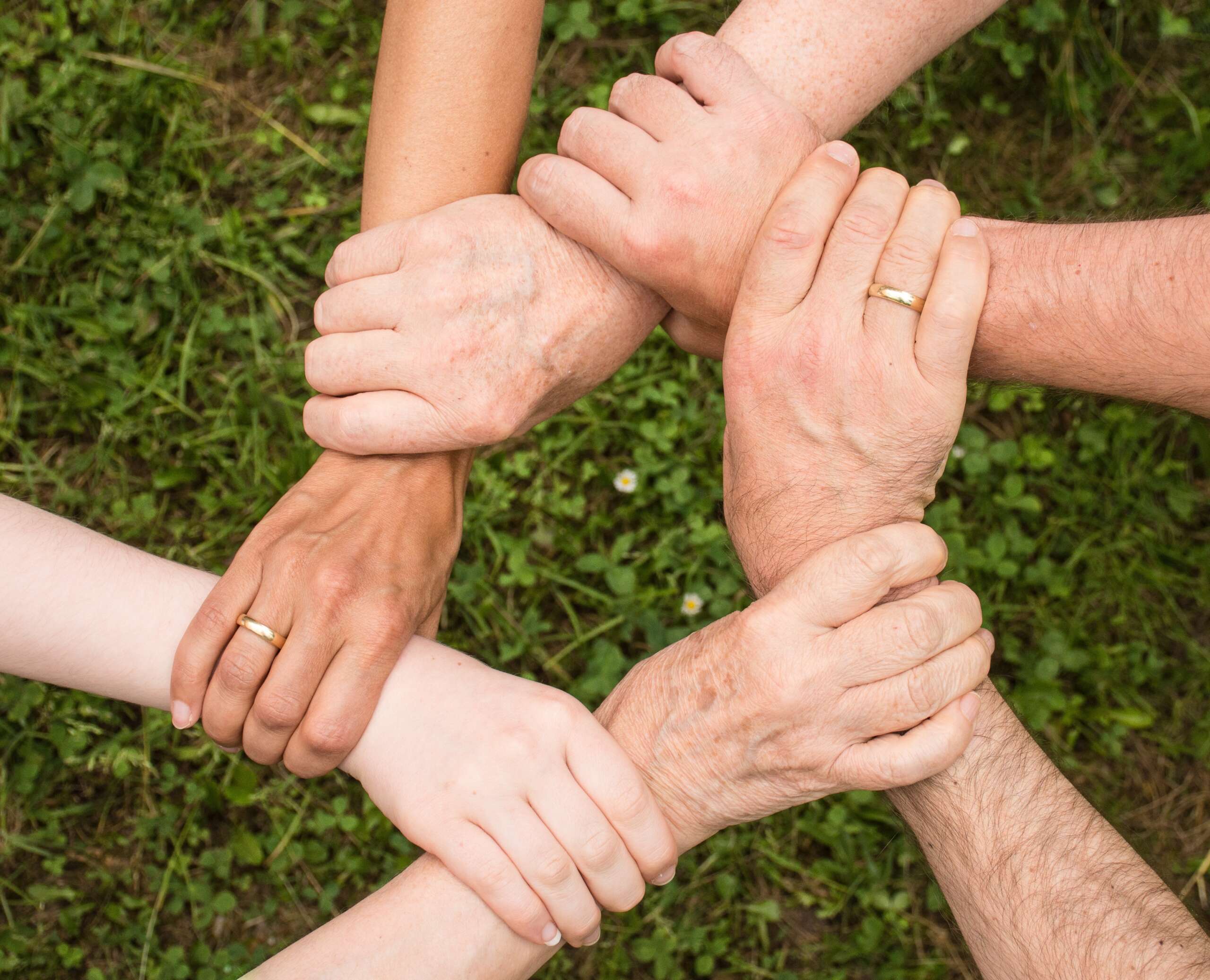
ERCC Funding Allocations

ERCC is funded through the Secrétariat aux relations avec les Québécois d’expression anglaise based on each of the activity components
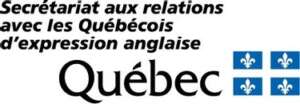
COMING SOON
ERCC on the Lower north shore

Surveys
- Surveys with community groups across the LNS to identify priorities and needs
- Surveys with businesses across the LNS to identify priorities and needs
- Surveys with Municipalities across the LNS to identify priorities and needs
Coastal Summit
- A Coastal Summit was organized and carried out across the LNS.
- Community meetings held with La Romaine, Kegaska, Harrington, Chevery, Tete-a-la-Baleine, Municipality of Gros Mecatina, Municipality of St. Augustine, Municipality of Bonne Espérance, Municipality of Blanc Sablon
- Leadership Summit held with Municipal Councils and local committees.
- Partnership Summit held with local, regional, provincial and national partners.
- Copies of “13 ways to kill your community” were distributed to Coastal Summit participants.
- 13 Ways assessment conducted with Coastal Summits participants from the LNS.
Training
- Training needs of community, businesses and municipalities compiled and shared with partners, training opportunities offered (FSL courses, Excel courses, business support, etc.
- Soft skills workshops developed (time management, effective communication)
Community Development
- Social Development Framework was created to support the seven community capitals of social developments.
- Municipal/community profiles were made for each municipality on the LNS.
- Funding opportunities shared with municipalities.
- Marketing and media tools purchased for the LNS.
ERCC Contact


Shelley Fequet
Director of Community Development & Mobilization
shelley.fequet@coastersassociation.com

Kimberly Buffitt
Director of Engagement & Development
kimberly.buffitt@coastersassociation.com
Place aux Jeunes

The mission of Place aux Jeunes is to make way for young people in the region to promote the attraction, integration and retention of qualified youth aged 18 to 35 years old in the region.
Objectives:
- Encourage the migration of young people in the regions.
- Promote business opportunities and facilitate the professional integration of young people in the regions.
- Support and bring together Place aux Jeunes projects.
- Foster and promote the social commitment of young people in the regions.
- Place aux Jeunes realizes the need for Quebec to have a specialized workforce, business succession and young people who want to participate in the vitality of the regions in Quebec.
History of Place aux Jeunes
Place aux Jeunes has been around for 30 years and is a national program established to counter the departure of young people in regions of Quebec. There are over 80 Place aux Jeunes agents across Quebec and the Lower North Shore secured a migration agent position in 2020. The agent for the Lower North Shore is based in the community of Old Fort Bay but services each community on the Lower North Shore. Place aux Jeunes is supported by the H.O.M.E. Committee which consists of four regional partners; Centre intégré de santé et de services sociaux de la Côte-Nord, Centre de services scolaire du Littoral, MRC du Golfe du Saint Laurent, and CEDEC.
This is why the Place aux Jeunes en region team has been working hard for the past 30 years to:
- Facilitate the professional integration of young people in the regions
- Stimulate the creation of businesses in the regions
- Raise awareness among young people, their entourage and local stakeholders of the benefits of migration
- Encourage and promote the social engagement of young people in the regions

Place aux Jeunes Funding Allocations

Place aux Jeunes en Region is funded by the Secretariat à la Jeunesse.

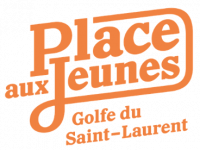
Place aux Jeunes on the Lower north shore

Individual Support
Are you thinking of moving to the Lower North Shore? Be aware that no matter how far you go, the Place aux Jeunes agent will be happy to help you remotely in your steps to return to the Lower North Shore or if you are looking for a new place to plant roots.
The various information and support that can be provided:
- Current job market in your field;
- Potential employers;
- Local and regional organizations;
- Entrepreneurship;
- Accommodation;
- Schools;
- Child care;
- Social, cultural and sporting life;
- Etc.
Exploratory Stays
Whether it’s a group format over a few days or an individual visit over a day, you’ll have the opportunity to discover the environment, enrich your network of contacts and plan your settlement in the region. This trip is a dynamic experience that allows participants to assess the potential offered by the region, both in terms of quality of life and professionally. Activities, accommodation and meals are free of charge!
Recruitment for Employers
We have a candidate bank of over 51,000 people on our website looking for employment opportunities in the regions of Quebec. You can create an account and add your job postings to the bank of jobs as an employer! The Place aux Jeune agent is also available to link you with possible candidates they are supporting who are interested in moving to the region. It really is a win for everyone! The best part is it is entirely free of charge!
Place Aux Jeunes Contacts


Leah Monger
Place aux Jeunes Migration Agent
placeauxjeunes@coastersassociation.com
Monday-Friday, 8 am-5 pm
(418) 379-2006
info@coastersassociation.com
